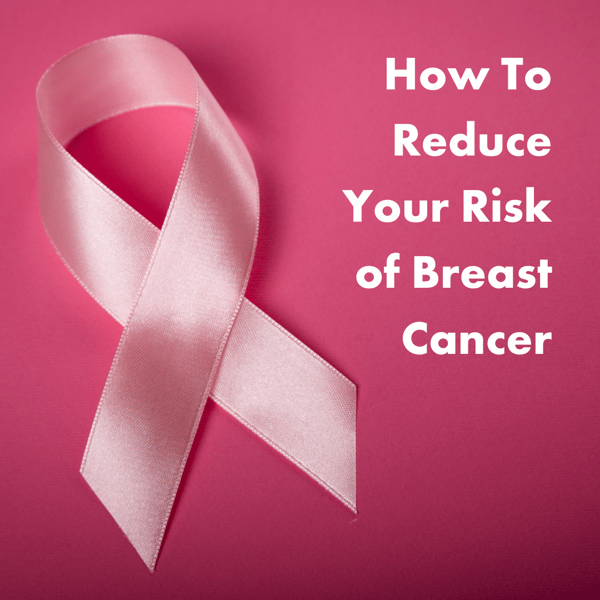October is National Breast Cancer Awareness Month

October is National Breast Cancer Awareness Month
The CDC reports that many factors over the course of a lifetime can influence your breast cancer risk. You can’t change some factors, such as getting older or your family history, but you can help lower your risk of many cancers, including breast cancer, by taking care of your health in the following ways:
-
Maintain a healthy weight
It seems a new fad diet is thrown at us every time we venture online. The key to maintaining a healthy weight is not a quick fix; it takes time and consistency. It's not a diet, it's a lifestyle change. -
Exercise regularly (at least four hours a week)
Regular physical activity is important to maintain or lose weight as well as reduces high blood pressure, risk for type 2 diabetes, heart attack, stroke and several forms of cancer. Physical activity may also reduce arthritis pain, decrease your risk of osteoporosis, falling and may relieve symptoms of depression and anxiety. -
Research shows that lack of night time sleep can be a risk factor.
Studies show that not only do poor sleepers tend to consume more calories, they also suffer from decreased immune function. - Don’t drink alcohol,or limit alcoholic drinks to no more than one per day.
Studies show alcohol consumption can increase the risk of mouth, throat, esophagus, liver, colon, and breast cancers, specifically among women. Furthermore, the risk of breast cancer increases as alcohol use increases. - If you are taking, or have been told to take, hormone replacement therapy or oral contraceptives (birth control pills), ask your doctor about the risks and find out if it is right for you.
The link between oral contraceptives and increased cancer risk comes from observational studies, both large prospective cohort studies and population-based case–control studies. Overall, these studies have found a link between women taking oral contraceptives and many types of cancer including breast, cervical, endometrial, ovarian and colorectal.
Contact the experts at Milestone for more information on cancer prevention
Staying healthy throughout your life will lower your rick of developing cancer and improve your chances of surviving cancer if it occurs. For more information on what you can do to reduce your rick, click here. If you'd like additional support regarding weight loss or learning healthier lifestyle strategies that may help reduce the risk of cancer, please contact the Milestone weight loss experts in the HMR Program for Weight Management at cbent@baptistmilestone.com, via phone at (502) 896-3900 ext. 124 or online here.


